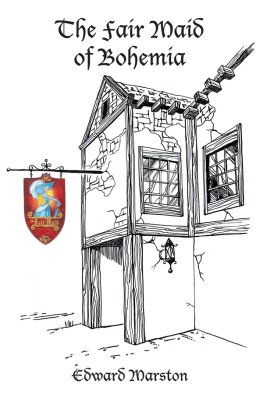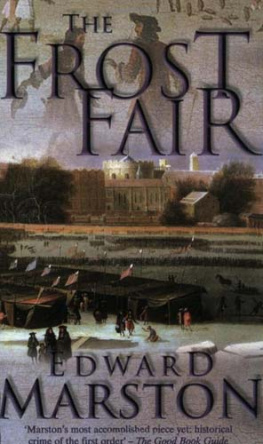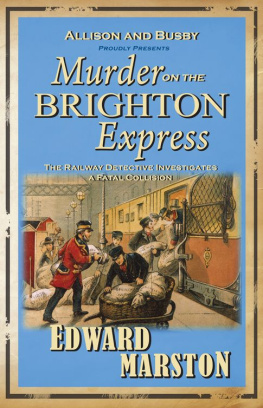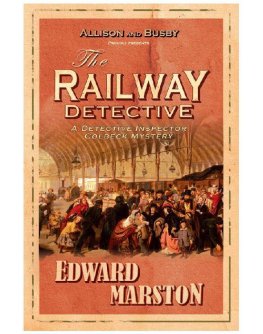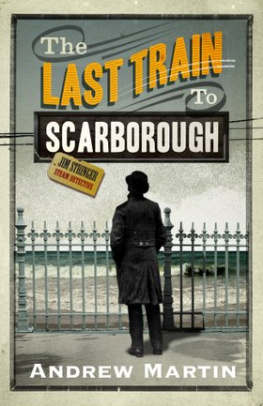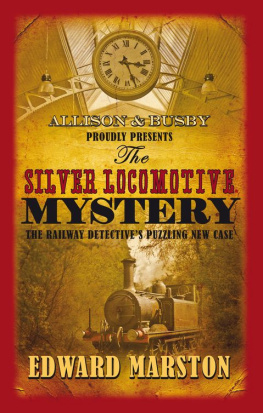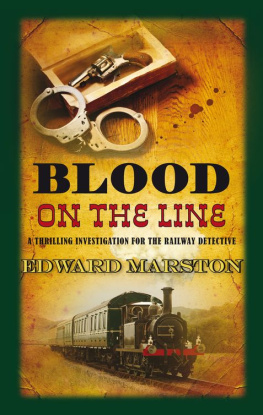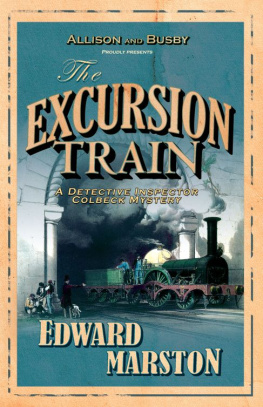CHAPTER ONE
1855
Colonel Aubrey Tarleton led an orderly existence. Born into a military family and subject to the dictates of a martinet father, hed been educated at a public school that prided itself on its strict regime. When he joined the army, therefore, he was already accustomed to a life within prescribed limits. He felt supremely comfortable in uniform and, as succeeding promotions came, he gloried in his position. His father had never risen above the rank of major. To acquire a colonelcy and thereby better the man whod sired him was, to Tarleton, a source of intense satisfaction. He carried that satisfaction into his retirement, finding, in civilian life, the deference to which he felt entitled.
Is that all you want, Colonel? asked his housekeeper, softly.
That is all, Mrs Withers, he replied.
As a rule, you have such a hearty breakfast.
I dont feel hungry this morning.
Shall I make you some more coffee?
No, thank you.
Very good, sir.
With a respectful nod, Mrs Withers backed out of the dining room. She was a handsome woman of middle years with an ample frame held firmly in place beneath her dress by steadfast stays. Retreating to the kitchen, she waited until she heard Tarleton ascending the staircase, then she snapped her fingers at the girl who was cleaning the knives with emery powder. Subdued in the presence of her employer, the housekeeper now became peremptory.
Clear the table, she ordered.
Yes, Mrs Withers, said Lottie Pearl.
And be quick about it.
Did the colonel eat anything today?
Thats none of your business, girl.
I was only wondering.
Youre not paid to wonder.
No, Mrs Withers.
Now do as youre told.
Lottie scurried out with a tray in her hands. She was a scrawny girl of sixteen and, as maid-of-all-work, was a relative newcomer to the house. In awe of Colonel Tarleton, she was frightened of the stern housekeeper and of her curt reproaches. Creeping tentatively into the dining room, she looked at the untouched eggs and the half-eaten piece of bread on the plate. Only a few sips had been taken from the cup of coffee. The sound of heavy footsteps in the bedroom above made her glance warily up.
Tarleton was on the move, crossing to open the wardrobe in order to examine its contents before walking to the window to look up at the sky. When hed taken his usual morning walk with the dog before breakfast, thered been more than a hint of rain in the clouds but they seemed to have drifted benignly away, allowing the sun to come into view. On such an important day, he was determined to dress well. After removing the well-worn corduroy suit he kept for his rambles through the countryside, he changed his shirt and put on his best trousers, waistcoat and frock coat. Shining black shoes, a fob watch and a cravat completed the outfit. Tarleton studied himself with care in the cheval mirror, making a few adjustments to his apparel then brushing back some strands of thinning white hair.
Taking a deep breath, he crossed to the door that led to the adjoining room and tapped politely on it. Though there was no response from within, he opened the door and gazed wistfully around. Everything in the room was a cherished keepsake. His eyes took in the paintings, the vases, the plants, the ornaments, the jewellery box, the furniture, the Persian carpet and the more functional objects before lingering on the double bed. On the wall above it was a beautiful Dutch tapestry that set off a surge of fond memories and he permitted himself a moment to savour them. After bestowing a wan smile on the room, he withdrew again and closed the door gently behind him as if not wishing to disturb its occupant. Then he collected his wallet, his spectacles and a folded sheet of paper. The last thing he picked up was a large safety pin.
Mrs Withers was waiting for him in the hallway, holding his top hat. As he took it from her, she indicated the letter on the table.
The postman came while you were upstairs, Colonel, she said.
Ive no time to read the mail now, Mrs Withers.
But there might be news . She quailed slightly as he turned to stare at her with a mingled anger and pain. Writhing under his glare, she gestured apologetically. Forgive me, sir. I spoke out of turn. You know best, of course.
Of course, he emphasised.
Do you have any orders for me?
Remember to feed the dog.
I will, Colonel.
Goodbye, Mrs Withers.
What train will you be catching back from Doncaster?
Goodbye.
It was a brusque departure. He didnt even wait for her to use the clothes brush on his coat. Putting on his hat and picking up his walking stick, he let himself out of the house and strode off down the drive. Face clouded with concern, the housekeeper watched him through the glass-panelled door but Tarleton did not look back. His tall, erect, still soldierly figure marched briskly away towards the main gate as if on parade before royalty.
South Otterington was a pleasant, scattered village on the east side of the River Wiske, large enough to have a railway station, three public houses, two blacksmiths and a cluster of shops, yet small enough for each inhabitant to know everyone else in the community. Colonel Tarleton was a familiar sight there, a member of the gentry held in high esteem as much for his heroic feats in the army as for his social position. When hed walked the mile or so from his home, he entered the main street to be greeted by a series of ingratiating smiles, polite nods and obsequious salutes. He acknowledged them all with a lordly wave of his walking stick. Nan Pearl, returning from the butcher with scraps for her mangy cat, all but curtsied to him, desperately hoping for a brief word of praise for her daughter, Lottie, now in service at the Tarleton household. Instead she got an almost imperceptible nod. Mrs Skelton, the rectors wife, on the other hand, merited a tilt of his top hat and a cold smile that flitted across his gaunt face.



